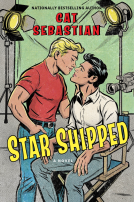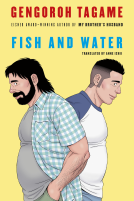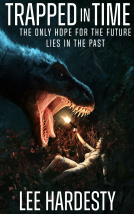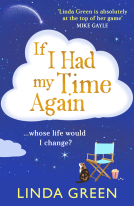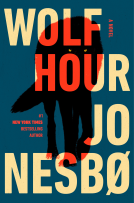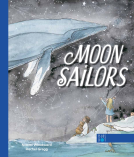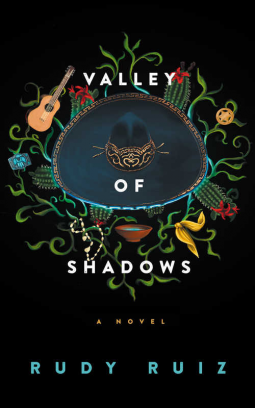
Valley of Shadows
by Rudy Ruiz
This title was previously available on NetGalley and is now archived.
Send NetGalley books directly to your Kindle or Kindle app
1
To read on a Kindle or Kindle app, please add kindle@netgalley.com as an approved email address to receive files in your Amazon account. Click here for step-by-step instructions.
2
Also find your Kindle email address within your Amazon account, and enter it here.
Pub Date Sep 20 2022 | Archive Date Nov 17 2022
Talking about this book? Use #ValleyofShadows #NetGalley. More hashtag tips!
Description
*One of Nerdist's 15 Awesomely Atmospheric Books To Read This Spooky Season*
*One of Buzzfeed's 20 New Mystery and Thriller Novels Coming This Fall*
A visionary neo-Western blend of magical realism, mystery, and horror, Valley of Shadows sheds light on the dark past of injustice, isolation, and suffering along the US-Mexico border.
Solitario Cisneros thought his life was over long ago. He lost his wife, his family, even his country in the late 1870s when the Rio Grande shifted course, stranding the Mexican town of Olvido on the Texas side of the border. He’d made his brooding peace with retiring his gun and badge, hiding out on his ranch, and communing with horses and ghosts. But when a gruesome string of murders and kidnappings ravages the town, pushing its volatile mix of Anglo, Mexican, and Apache settlers to the brink of self-destruction, he feels reluctantly compelled to confront both life, and the much more likely possibility of death, yet again.
As Solitario struggles to overcome not only the evil forces that threaten the town but also his own inner demons, he finds an unlikely source of inspiration and support in Onawa, a gifted and enchanting Apache-Mexican seer who champions his cause, daring him to open his heart and question his destiny.
As we follow Solitario and Onawa into the desert, we join them in facing haunting questions about the human condition that are as relevant today as they were back then: Can we rewrite our own history and shape our own future? What does it mean to belong to a place, or for a place to belong to a people? And, as lonely and defeated as we might feel, are we ever truly alone?
Through luminous prose and soul-searching reflections, Rudy Ruiz transports readers to a distant time and a remote place where the immortal forces of good and evil dance amidst the shadows of magic and mountains.
A Note From the Publisher
Advance Praise
“Ruiz’s engaging tale, peppered generously with Spanish words and smoldering with racial tension and classism, is immersive and atmospheric and features an interesting cast of characters with rich backstories. Ruiz deftly combines elements of romance, historical mystery, horror, and magical realism to deliver a richly satisfying adventure.”
-Booklist (starred review)
“Ruiz offers an engrossing blend of historical fiction, ghost story, and mystery…He employs elements of magic realism to haunting effect, and the depictions of human cruelty and injustice are unflinching…This has its rewards.”
-Publishers Weekly
“Rudy Ruiz’s Valley of Shadows haunts with its trenchant historical accuracy woven dazzlingly with magical real elements that make this borderland Western horror leap off the page. Indeed, this powerful story wriggled into my heart and gut like a snake seeking shelter in the scorched desert earth. Unsettling and uplifting, both. Filled with ghosts both literal and metaphorical in a desolate place overflowing with unforgettable characters whose stories are woven by a masterful storyteller, Ruiz’s Valley of Shadows is searing, incisive, and, at times, utterly terrifying.”
-Jennifer Givhan, author of River Woman, River Demon
“Ruiz writes with the ache of the lonely and the audacity of the hopeful. His prose is unforgiving and his characters unrelenting. Valley of Shadows contains a sharpness of vision that is exceedingly rare; and through this tale of redemption and rediscovery, Ruiz certifies his voice—as well as his philosophy of togetherness—as a ferociously necessary addition to American letters.”
-James Wade, awarding-winning author of All Things Left Wild
Marketing Plan
National print reviews and features
Literary-fiction buzz mailing
National print and online advertising
Op-eds and original essays
Social media campaign
Spanish-language edition simultaneous release promotion
Author website: RudyRuiz.com
Also available: The Resurrection of Fulgencio Ramirez
Available Editions
| EDITION | Hardcover |
| ISBN | 9781982604646 |
| PRICE | $27.99 (USD) |
Average rating from 44 members
Featured Reviews
Lots Going on Here
There is so much going on in this novel that it takes a bit of effort to unpack it all. Set in 1883 on the Mexico/Texas border, the book has been described as a "visionary neo-Western", and that characterization captures some of its flavor. This isn't just a Zane Grey or Owen Wister oater, or an ambitious, more literary, horse opera. It feels much more like the basic outline of that sort of book has been laid out, but then embellished, improvised on, and extended to create something much more ambitious and interesting.
And so, you get, (in descending order of how dominant an ingredient it is) -- an historical fiction, a mystery, a western sheriff procedural, a colorful/dusty western adventure, a sweet and gentle romance, a Mexico/U.S.A. history lesson, a cultural tour, a ghosts and spirits story, and a horror/occult tale. This is set against a background that fluctuates between magical realism and gritty slice of life realism. And it all is meant to put our hero's existential angst into high relief. It helps that our hero's brooding isolation makes sense, and that the reader is sympathetic to his plight. If that's "neo-Western" I'm all for it.
The writing can be lyrical, thrilling, or evocative. To be fair, it can also be a bit clunky and repetitive, and the author sometimes has to rely on character monologuing and narrative explication to keep the story moving or to make a cultural point. I suppose that's a small price to pay when you get a romance, a multicultural tour, occult horror, mysticism, ghosts, history, gunplay, barn burning, revolution, family curses, and heroic suffering all in one book.
So, I wasn't quite sure what to expect when I picked this up, but Ruiz didn't let me down, and I liked his new style Western.
(Please note that I received a free ecopy of this book without a review requirement, or any influence regarding review content should I choose to post a review. Apart from that I have no connection at all to either the author or the publisher of this book.)
 Jessica T, Librarian
Jessica T, Librarian
I found this one interesting—a blend of western, magic realism, mystery, and a touch of horror—it kept my attention and surprised me on a number of occasions. It dealt head on with the effects of Mexican American border changes in the 1860s and 1870s and the ever-present racism and injustice to both Mexican and indigenous populations. The story follows a run of graphic murders starting with the local sheriff and his family—pulling the gifted former rurales, Solitario Cisneros, back to the town of Olvido to investigate.
This book was extremely moving and powerful. I think many people will benefit from the lessons of this story. I hope this book ends up in the hands of many.
 Educator 1004199
Educator 1004199
Valley of Shadows was WOW, a great slow burn paranormal mystery. The ghostly element really kept me on my toes, you never could tell which way something was going to go. I was hooked from the first page!
There are so many reasons I love this novel. First, the historical landscape had nuance and depth; the perspective decolonized the past, highlighted the transnational experience of the American-Mexican borderlands through the eyes of the Mexicans and the indigenous peoples who lived there. Ruiz did not shy away from the racial tensions, the ethnic conflicts, and the histories of colonization that were part of the fabric of life on the borderlands in the 19th century — and I deeply appreciated that. Indeed, much of the plot revolves around those very transcultural tensions. This grounded this paranormal western/mystery/horror in a historical reality that made the events all the more horrific; they were real. The violence of this time was real, not a fiction of Ruiz’s imagination.
Second, Ruiz’s use of linguistic and ethnic markers is significant. Yes, this is a novel, but it is also a work of decolonization. Ruiz disrupts the whiteness of the Western genre with Valley of Shadows. The primary protagonist is Solitario Cisneros, a Mexican man who used to be sheriff — and could still be. Onawa is a young half Mexican, half Apache woman who assists Solitario in his investigation of a series of murders. The living and the dead show up in various parts of the story, some from Solitario’s past which is never far behind him. History in this novel is very much a dynamic, fluid factor in this novel; it is almost as alive as the characters.
There is a mix of white, Mexican, mixed-race, and indigenous characters in this novel, mimicking the historical and contemporary reality of North American borderland communities; nothing is ever cut-and-dry, black or white in such places, then or now. This diversity of identities makes the characters more recognizable; their ethnic and historical diversity mimics our own multiple identities and ways of being. Race, ethnicity, class, and history shaped these characters, making them palpable, their decisions and actions authentic and borne out of subjective needs and ambitions as much as they were shaped by social and historical factors.
Third, Ruiz unfolded the story with skill. Tension and mystery were embedded in the plot, compelling me to read on, but it was the way in which Ruiz slowly unravelled the plot. At the end the reader will see that all the threads of the mystery were there, almost from the very start, waiting for us to weave them into fabric. The story revolves around a series of gruesome, brutal murders. There is very real, physical horror here; the idea that these could be done by a human being on another is scary enough — but there’s the possibility this could be something more supernatural. Which is more sinister?
Valley of Shadows is Solitario and Onawa’s adventures in this realm and the next as they speed against time to save the other potential victims, apprehend the murderer(s), and deliver justice to the victims and their surviving families.
 Emily M, Reviewer
Emily M, Reviewer
Full disclosure: I was given a free PDF copy of this book by Books Forward in exchange for an honest review.
Within the last few years, there has been more attention on books written by authors of color. These often reveal perspectives that’s normally not highlighted in the mainstream, and they can find ways to connect with lots of readers. An example of this is "Valley of Shadows" by Rudy Ruiz – a good recontextualization Hero’s Journey story with a Mexican protagonist in 1883 Mexico/Texas.
"Valley of Shadows" is a visionary neo-Western blend of magical realism, mystery, and horror, and it explores the dark past of injustice, isolation, and suffering along the US-Mexico border. In 1883 West Texas, after the Rio Grande shifted course, the Mexican city of Olvido gets stranded on the northern side of the new border between the US and Mexico border. When a series of mysterious and horrific crimes occur in the divided town, a Mexican lawman is lured out of retirement to restore order and to save the lives of abducted children. In the face of skeptics and hostile Anglo settlers, Solitario Cisneros struggles to overcome not only the evil forces in the area, but also his own inner demons. He is burdened by a mystical curse that has guided his lonely destiny, until Onawa, a gifted and beautiful Apache-Mexican seer, joins his mission and dares him to change the course of both their lives.
There were many things that I liked about this book. First off, I thought the characters were done well. I like Solitario as a character, for he’s smart, stoic, and good at what he does. Readers can easily see why he’s so reluctant to assist the town with solving the crimes as well as wants to be alone. He yearns to do the right thing in the name of honor even if it tears him apart from the people that he loves. He’s also battling some demons due to a curse that his grandmother placed on the male side of his family. In addition, I like Onawa, who is half Mexican and half Apache. She possesses supernatural abilities and assists Solitario. Even though her main motive is to be with him, she becomes more confident and figures out what she really wants after spending most of her life with her father away from her tribe. Furthermore, I want to give credit to Ruiz for including a diverse cast of white, Mexican, and indigenous people. This reflects the real makeup of Texas as opposed to what other stories that involve the US-Mexico border depict.
In addition, it does an effective job with addressing identity, injustice, and discrimination in this time period. With identity, the non-white characters often ruminate on who they are and where their homes are. This is true both physically with Mexicans discovering that Olvido has suddenly moved to the United States because of the shifting Rio Grande and mentally with Solitario wanting a place to be loved, but without being reminded of his past. The injustice aspect is highlighted when Onawa acknowledges how if Solitario as the new sheriff arrests a white person for a crime, then he would be considered racist by the Anglo settlers, but if he apprehends a Mexican person, then other Mexicans would assume that he’s selling out his own ethnicity. Moreover, racial discrimination is constantly acknowledged in a multitude of ways. For example, while Solitario investigates, the town gets so restless that some of the white men decide to round up the Mexican and Apache men and boys and shoot them in order to execute their own version of justice. Luckily, he thwarts this crime by playing his guitar and putting those would-be murderers to sleep. This all works because Ruiz – a son of Mexican immigrants – understands that identity, injustice, and discrimination surface in many ways.
Furthermore, I love the recurring theme of never truly being alone. While Solitario (good name for a guy who wants to be alone) wants to live by himself away from others, he’s constantly reminded of the people around him like his family and his deceased wife due to the curse. Even his friend and sidekick Elias (as a ghost) sticks by Solitario as the latter encounters the trials and tribulations of searching for the kids and the perpetrators.
One thing that I observed is that the book likes to pepper in various Spanish words and phrases. It gives it more authenticity. I imagined the Mexican characters speaking to each other in that language even when the text is in English. While it does help to know a little bit of Spanish, readers will most likely be able to figure out what they mean through the context.
While reading the novel, I also discovered that even though it’s nearly 500 pages, it moves at a brisk pace. Outside of Spanish words and phrases, Ruiz mostly avoids using jargon in the text. Moreover, the pacing matches the urgency of the situation. This is especially true in how Solitario genuinely wants to solve the crimes and prove himself to the white settlers in Olvido in his own way.
One final thing that I noticed while reading it is that it perfectly fits with the Hero’s Journey template popularized by Joseph Campbell. Solitario gets the call to help the town to solve the crimes as the new sheriff, but he refuses outright. However, he ends up searching for the abducted children with assistance from Onawa, who has supernatural abilities. He goes through some trials, meets with a woman who knows about Aztec culture, (the kidnappers and murderers use that civilization’s rituals to carry out their crimes) who assists him with the murders and kidnappings (Meeting with a Goddess), and has an atonement with the Father (which results in a great twist). And of course, he experiences death and rebirth. Even though it felt a little too neat, I feel that it was done that way, so readers could recognize the template in other stories like "Star Wars." "Valley of Shadows" does an effective spin on the Hero’s Journey.
Finally, I want to point out that this might not be for everybody. There are some scenes, in which people are brutally murdered. For instance, its opening scene contains the first Olvido sheriff, his wife, and their eldest son getting murdered, and it’s pretty gory. Even I got squeamish at times. Additionally, some people might not like the talk about injustice and the plot being “woke,” thinking that’s too contemporary. I think it’s necessary because it feels natural to the story. Solitario faces plenty of bigoted Anglo settlers who feel entitled to many things like land in Olvido and being allowed to perform their own version of the law.
All in all, "Valley of Shadows" by Rudy Ruiz is a good novel that features a diverse cast and acknowledges perspectives that aren’t usually recognized. Some people may be turned off by the gory bits or the talk of injustice, but the book is worth the read because it recontextualizes the Hero’s Journey into late 19th century Mexico/Texas, and it has very likable characters that readers would want to root for. I would recommend it for those who love westerns, horrors, and magic realism as well as want to read more titles by Latine authors. The book is out now, so get it at your local bookstore or library!
Readers who liked this book also liked:
Debbie Young
General Fiction (Adult), Mystery & Thrillers, Women's Fiction
